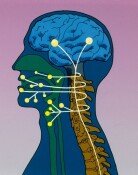Pyongyangs change prerequisite for Seouls lifting of May 24 sanction
Pyongyangs change prerequisite for Seouls lifting of May 24 sanction
Posted October. 14, 2014 14:33,
President Park Geun-hye mentioned a solution to lifting of the May 24 measure and the necessity to provide fertilizer assistance to the North at the second meeting of the national unification preparation committee on Monday. Pyongyang, which has been demanding the lifting of the measure, would find it attractive to hear Parks remarks that authorities of the two Koreas must meet and resolve issues by holding dialogues in a sincere and responsible way.
Park apparently made the remarks due to her agony and desire to improve inter-Korean relations, which remain stalled, and in which the North has continued provocations. The president presented the vision of a unification bonanza and the Dresden plan through her Korean Peninsula peace-building process, but Pyongyang has strongly suspected that the plans are aimed at unification through the Souths acquisition of the North. It is true that the South Korean public has limited understanding about President Parks vision towards the North. According to the recent three joint surveys by The Dong-A Ilbo and the Asan Institute for Policy Studies, as many as 72.9 percent of respondents said the South should not hurriedly push for unification. On the Park administrations North Korea policy, those who expressed dissatisfaction (47.7 percent) outnumbered those who expressed satisfaction (41.7 percent). The North is responsible for this to a large extent, but the result could also be an indicator of the South Korean publics discontent about the protracted freezing of inter-Korean relations.
Throughout the Lee Myung-bak administration, bilateral relationship had remained stalled due to the Norths nuclear tests, missile launches, sinking of the Cheonan and artillery attacks on Yeonpyeong Island. Inter-Korean dialogue has also been effectively blocked for nearly 20 months after the inauguration of the Park administration. Even South Koreans tours to Mount Kumgang have not resumed as well because Pyongyang has neither apologized nor pledged to prevent recurrence since its killing of South Korean tourist Park Wang-ja in Mount Kumgang in 2007. As President Park has mentioned ways to lift the May 24 sanction for the first time in a rare overture, the North will need to demonstrate its sincerity through acts to move and change the South.
On the fourth anniversary of the Cheonan sinking in March this year, the North said, (The South) should no longer keep this incident as an artificial obstacle blocking improvement of inter-Korean relations, or a stumbling block to easing tension. If Pyongyang truly intends to improve inter-Korean relations and ease tension, it should show true change in its behaviors and acts. The South Korean government cannot afford to lift the May 24 sanction without having any justifiable cause. The second high-level contact will be a litmus test indicating the Norths changed behaviors and stance.







